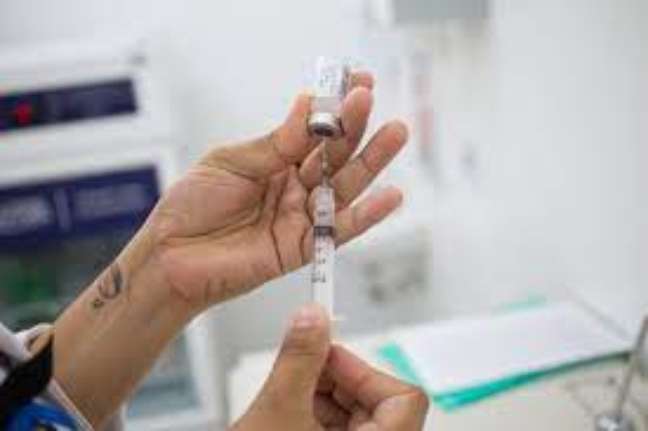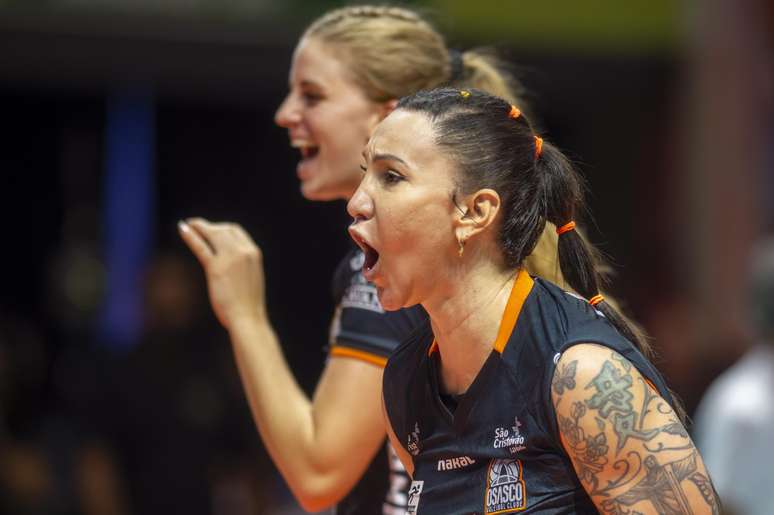The country is in the group of eight countries where the index rose, according to an article published in “Nature”; the data may help explain the low immunization coverage of Brazilian children

The hesitation of the Brazilians in vaccinate your children against covid-19 increased by 56.3% between 2021 and 2022, contrary to what is happening globally. The data is part of a survey conducted by the Global Health Institute of Barcelona (ISGlobal), which analyzed data from 23 countries with more than 60% of the world’s population, including Brazil. The work was published in the scientific journal Nature.
Globally, the willingness of parents to get vaccinated your children against the new coronavirus it increased between 2021, when many immunizers were not yet approved for minors, and 2022, rising from 67.6% to 69.5%. In Brazil, the trend has been the opposite. The increase in hesitations is noteworthy: from 8.7% in 2021 to 13.6% in 2022.
The data may help explain the low vaccination coverage against covid-19 among Brazilian children. While among adults 85% have at least one dose and 80% have completed the primary scheme (two doses), among children only 39.5% are fully immunized and 56.83% have received at least one dose . These are the data of the Media Consortium.
The adoption of COVID-19 vaccines increased by 5.2% between 2021 and 2022 globally. Last year, 75.2% of respondents said they were willing to be vaccinated. This year it was 79.1%.
But at least eight countries, including Brazil, are against this trend. The group also includes the UK, China, Turkey, Kenya, Mexico, Ghana and South Africa. Declines in vaccine acceptance in these countries range from -1% in the UK and China to -21.5% in South Africa. In Brazil it was 3.3%.
“The pandemic is not over, and authorities urgently need to address vaccine resistance as part of their COVID-19 prevention and mitigation strategy,” Jeffrey V. Lazarus, head of ISGlobal Health Systems Research Group, told the journal. .
As for booster shots, the new study found that 12.1 percent of respondents were reluctant to take the additional dose. In Brazil, only 3.6% said they were hesitant to receive a vaccine booster. In any case, about 100 million Brazilians have a delayed booster dose, according to the Ministry of Health.
The countries with the highest rates of hesitancy to take the booster vaccine are Russia (28.9%), France (26.1%), South Africa (18.9%) and Canada (17.6%).
“Our findings show that public health strategies to increase recall coverage need to be more sophisticated and adaptable for each setting and target population,” said Lazarus. “Strategies to increase vaccine adoption should include messages that emphasize compassion over fear and use trusted messengers, especially health professionals.”
+The best content in your email for free. Choose your favorite Terra newsletter. Click here!
Source: Terra
Ben Stock is a lifestyle journalist and author at Gossipify. He writes about topics such as health, wellness, travel, food and home decor. He provides practical advice and inspiration to improve well-being, keeps readers up to date with latest lifestyle news and trends, known for his engaging writing style, in-depth analysis and unique perspectives.




![Tomorrow belongs to us: What awaits you on Friday 1935, May 2, 2025 [SPOILERS] Tomorrow belongs to us: What awaits you on Friday 1935, May 2, 2025 [SPOILERS]](https://fr.web.img2.acsta.net/img/bd/e3/bde319fb4af6a341774d2d1d35b8ab23.jpg)



